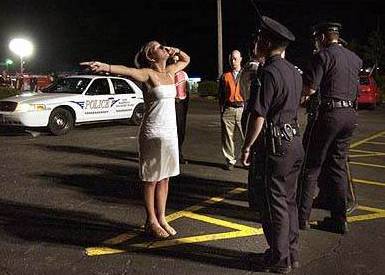
MANCHESTER, NH – Legislation that would end the practice of police sobriety checkpoints in New Hampshire passed the House by a voice vote on last week.
House Bill 1283, which passed without debate on Feb 22, would end the practice of checkpoints operated by local municipalities, which has been legal in New Hampshire since 2003.
Critics of the practice say checkpoints are ineffective at curbing drunk driving and are constitutionally unsound. A 2017 review by the Monitor found that fewer than 1 percent of drivers stopped since 2006 were charged with driving while intoxicated.
The vote came after a divided committee in January recommended, 12-8, to move the bill ahead. Police departments strongly oppose the law, maintaining checkpoints are an important tool in combating impaired driving. The bill was co-sponsored by five Republican reps, four representing Rockingham County – Brian Stone, Kevin Verville, Michael Costable, Scott Wallace – and Hillsborough County Rep. Larry Gagne, who represents Manchester’s Ward 6.
Gagne says he signed on as a sponsor after reading the bill, crafted by Stone a first-term rep and attorney, who also leans Libertarian.
“I read the bill thought it was a good idea. I was a police officer in Manchester back in the day, and I believe all it takes is good old-fashioned police work and observation to catch an impaired driver. Frankly, checkpoints are an assault on the Fourth Amendment,” Gagne says, who served for a time as a Manchester Police officer during the 1970s.
The Fourth Amendment reads:
The right of the people to be secure in their persons, houses, papers, and effects, against unreasonable searches and seizures, shall not be violated, and no Warrants shall issue, but upon probable cause, supported by Oath or affirmation, and particularly describing the place to be searched, and the persons or things to be seized.
Gagne also believes checkpoints are costly for taxpayers, as it requires officers on checkpoint detail to be paid overtime.
“It’s just not right, plus the fact that most of those officers are all on overtime – so it’s extra duty for them. To me, it’s a lazy way to catch people, and of all the stops they’ve made, something like less than 1 percent of all vehicles stopped result in a DUI. In most cases, they are getting drivers for other things, which as I said, goes against the Fourth Amendment,” Gagne says.
Those who opposed the bill usually say they appreciate any effort that keeps people safer on the roads.
“They also say if you’ve done nothing wrong you shouldn’t worry about it. Well, our Founding Fathers put that in writing for a reason with the Fourth Amendment. Back then they’d go in to your house and search for contraband, they’d just go in there and search. In Manchester, in my policing day, we had a four-hour detention law. If you had a suspicion someone had done something wrong, you could bring them in and hold them for four hours without a charge. It was so abused that eventually, they did away with it.”
Gagne pointed out that although he suspects the bill will not have widespread support from Democrats, his colleague from Ward 6 on the Criminal Justice and Public Safety Committee, State Rep. Richard O’Leary, is a Democrat and retired Manchester Deputy Police Chief, who also voted in favor of the bill.
If passed the bill would go into effect Jan. 1, 2019.







